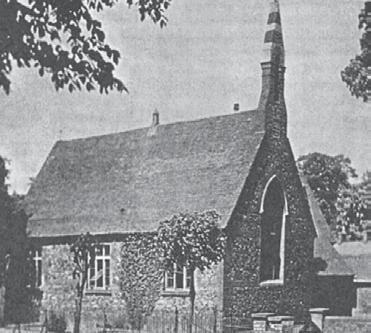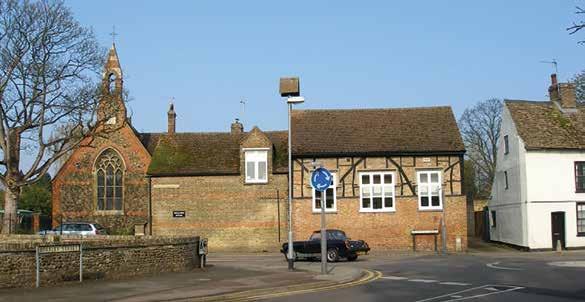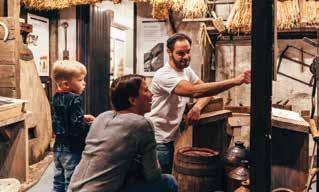
3 minute read
A Home-Grown Eynesbury Victorian Schoolmaster
from Cambs October 2020
by Villager Mag
The all-pervasive virus has reminded us of many of the everyday things that we take for granted such as the sound of happy children released from their National Curriculum classroom bondage enjoying all the fun of the playground. It has also encouraged a ‘grow-your-own’ boom in back garden mini allotments. Back in Victorian times local communities such as Eynesbury often grew their own vegetables and, occasionally, a schoolmaster. The Rev. Maule (Rector 1851-90) raised the money to build a new school which was opened by the Bishop of Ely in 1868. The locals had to find the money to pay for a schoolmaster. Often Victorian teachers had been ‘grown’ through a system of class monitors and pupil teachers, which meant that they already had considerable classroom experience before they embarked on formal teacher training. George Flavill of Eynesbury was a good example of this system. He was the son of a saddler and attended Eynesbury Church School, where he made good progress, achieving Standard III at the early age of eight By 1870 he had reached Standard V, the highest Standard in the school at that time and was selected as having sound roots from which a useful teacher could be grown. His teaching career began when he was barely twelve years old, for on 29th January 1872 he was appointed as monitor to the 4th Class. In 1874 at the age of fourteen, he was formally apprenticed as a pupil teacher of the first year. By October 1876 he was ‘best in show’ being 1st in the 1st class of Huntingdonshire pupil teachers and 3rd in three counties. For this performance he was

Advertisement
awarded a £3 prize, a considerable sum at that time. In July 1877 he received a £1 prize from the HMI. In December 1878 he received a real vote of confidence from Mr Jennings when, at the age of 18, he was left in charge of the school. The Log Book entry for 16th December reads: “Master absent. School in charge of Mr George Flavill, Queen’s Scholar.” The grounding George had received at Eynesbury stood him in good stead. Having qualified he went on to enjoy a successful career in his chosen profession, becoming headmaster of Romsey Council School, Cambridge. Acknowledgements to the St Neots History Society newsletter from 2001. St. Neots Museum is another home-grown part of the town. Visit its web site for its latest activities. Drop in to buy exclusive presents from its shop. By Peter Ibbett

VISIT St Neots Museum


Tuesday to Saturday 11.00am - 4.00pm St Neots Museum, 8 New Street, PE19 1AE Tel: 01480 214163 Winter Craft & Gift Fair 17th Oct ~ 24th Dec 2020 Unique, handmade gifts by local artists and craft makers On our website Family craft activities Art exhibitions Local history blogs Family trail around St Neots town centre KS2 local history videos Toddler Time The Kimbolton Coin Hoard and Iron Age St Neots Now on until Museum shop open Handmade gifts, souvenirs, books, cards, toys, Saturday 14th October 2017 crystals & minerals, jewellery at St Neots Museum
Visit our website or search for St Neots Museum on YouTube to find our content.
www.stneotsmuseum.org.uk Hands on activities include, excavate hidden treasures in our sand tray, add a leaf to our oak tree and make an off ering in our ‘well’. Follow us on Facebook, Twitter and Instagram www.stneotsmuseum.org.uk St Neots Museum, The Old Court, 8 New Street, St Neots @StNeotsMuseum Tel: 01480 214163 Open: Tuesday to Saturday 11.00am - 4.00pm @stneotsmuseum
Admission Free to Local Residents @stneotsmuseum
Other visitors: Adults £3.00, Seniors £2.00, Children £1.00










